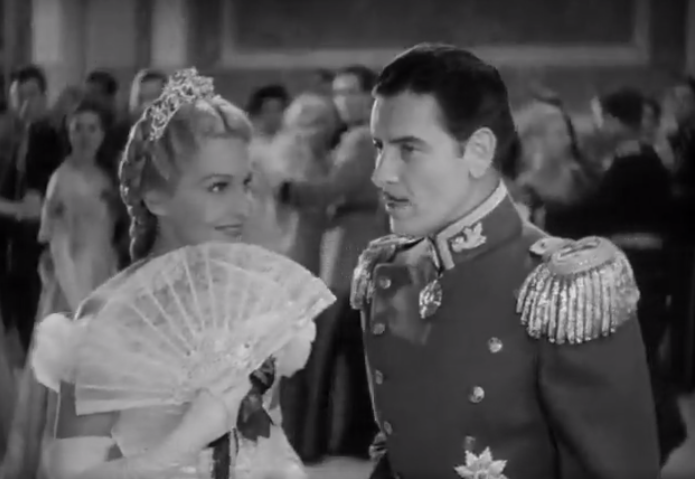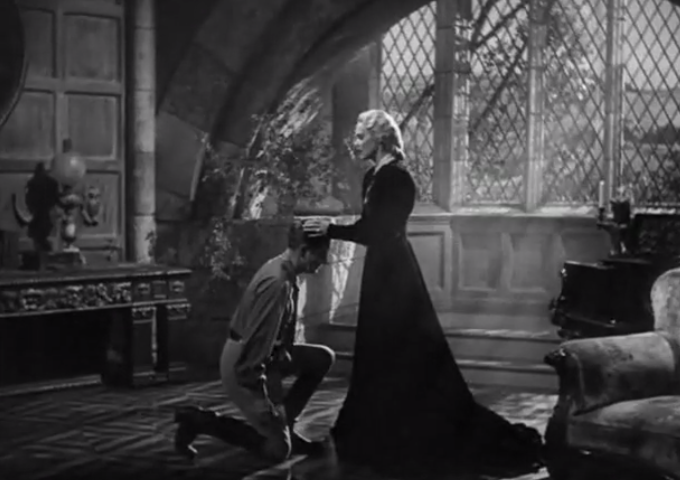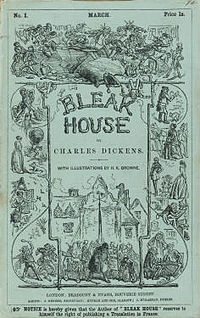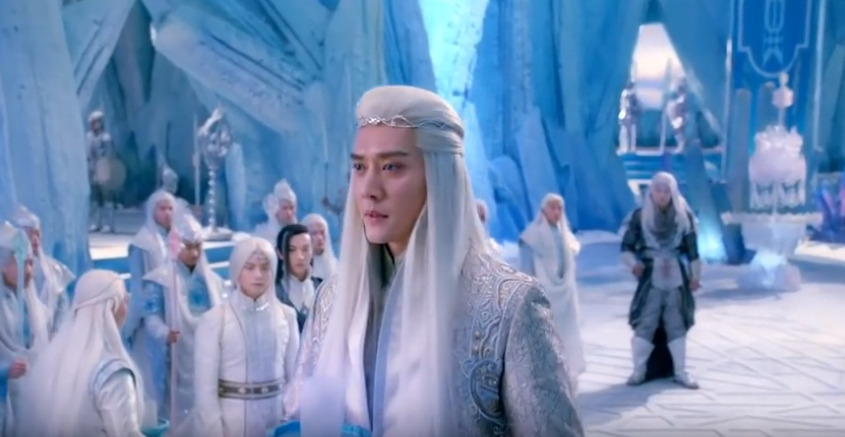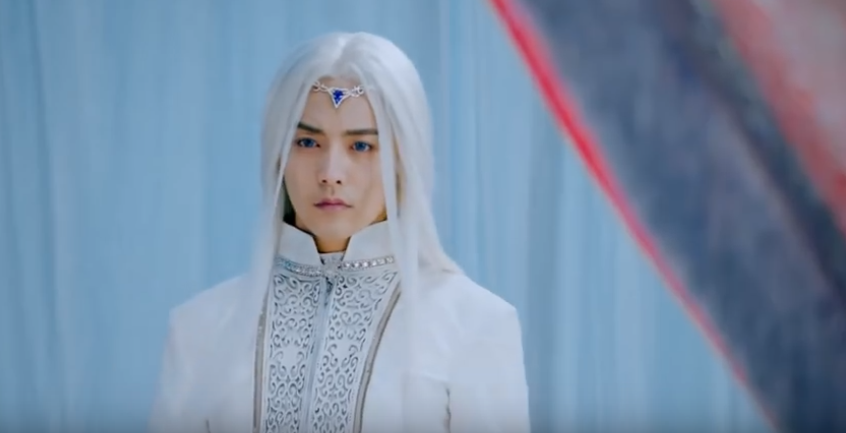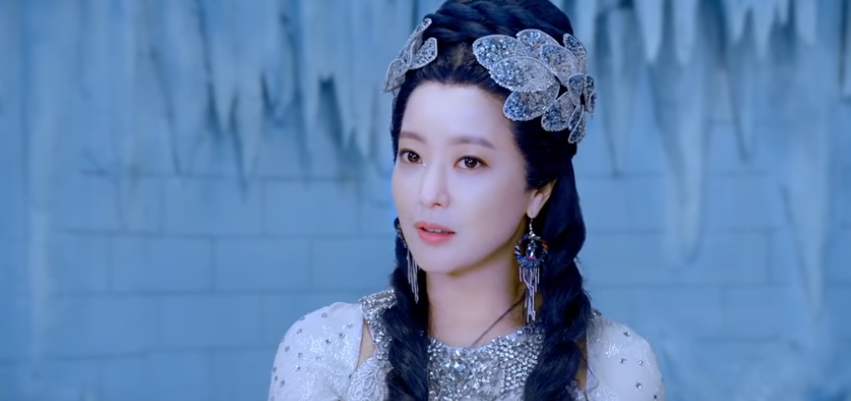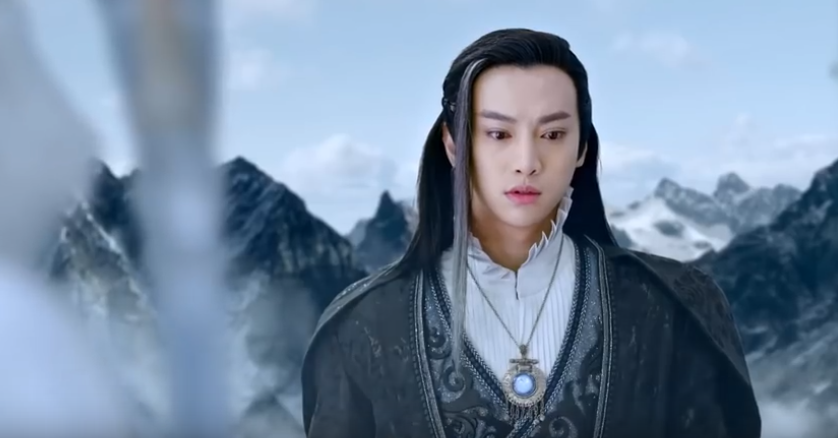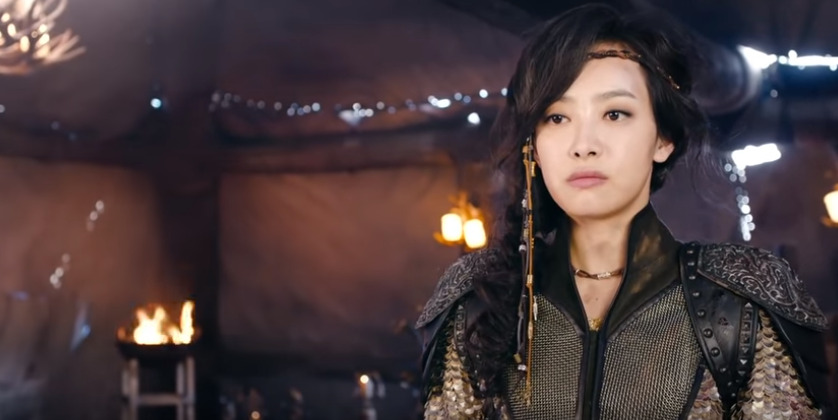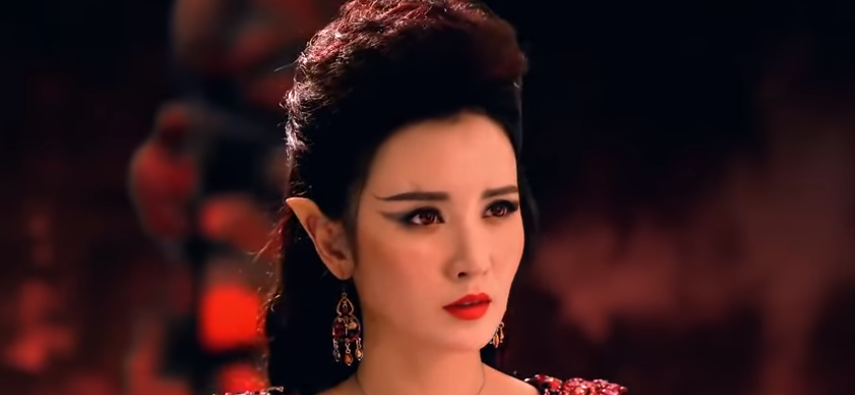Well, here's the last review of 2018. How time flies!
At the Back of the North Wind is an 1871 children's book by George MacDonald. It revolves around a little boy named Diamond, who meets the North Wind and goes on adventures with her.
The first half of this story is very good, and reminds me a lot of Narnia. (Probably not a coincidence, because C. S. Lewis admired George MacDonald's works.) Diamond's travels with the North Wind are fascinating, and so are many of their conversations. The scene where North Wind has to sink a ship, and her explanation of why, is especially thought-provoking.
But then North Wind almost disappears from the story, and it becomes... frankly, rather dull. Diamond, after his trip to the back of the North Wind, comes perilously close to being the sort of soppy, impossibly perfect child who is all too common in Victorian children's literature. And the poems and frequent dream sequences left me feeling like I was reading Alice in Wonderland without the Wonderland.
I was amused by the bit near the end, where the author appears as a character in the book -- a fairly likeable background character, not an obnoxious main character like in certain modern novels (*cough*Twilight*cough*). And I wasn't expecting the end at all. It's left ambiguous if Diamond is actually dead or if he's gone to the back of the North Wind again, but it's strongly implied that North Wind is, among other things, a personification of Death, so who knows 🤷
I can't help feeling a bit disappointed that so little of the book is actually about North Wind. But children for years have loved this book, so maybe I was too old to properly enjoy it when I first read it.
Is it available online?: Yes, on Gutenberg.
Rating: 5/10.
Reviews of books, period dramas, and a few other things. Updates every Sunday and Wednesday.
Sunday 30 December 2018
Wednesday 26 December 2018
Review: The Prisoner of Zenda (1937)
I hope everyone had a great Christmas! 😃 For the second-to-last review of 2018 (where does time go?!) I'll review one of my favourite films.
Adaptations are rarely as good as the original. But every so often, you find exceptions to the rule. This is one of them.
This wasn't the first version of Zenda; there were at least two silent films based on the book. But this is the best-known film, and generally just the best adaptation.
I recognised only two of the actors:
Ronald Colman (Sydney Carton in A Tale of Two Cities 1935) as the two Rudolfs
David Niven (Phileas Fogg in Around the World in Eighty Days 1956) as Fritz
The film begins with Rudolf Rassendyll arriving in Ruritania a day before King Rudolf's coronation. He meets Fritz, Sapt (apparently spelt Zapt in this film, for reasons known only to the producers), and King Rudolf. King Rudolf sees this as an opportunity to get drunk... with wine Michael sent him. Terrible idea, Rudolf. It ends as badly as you'd expect: King Rudolf unconscious, and not-king!Rudolf his reluctant impersonator.
Meanwhile, we meet Michael. I like Michael much better here than in the book. Book!Michael was primarily in the background, with very few appearances and even fewer lines. Film!Michael gets considerably more screentime, and a chance to explain his motivations. Basically, he's jealous because he's the older son but Rudolf is the heir. (In the book, Michael is the younger brother, and his parents were married -- morganatically, but still a valid marriage. The film implies that Michael is illegitimate.)
Rupert makes his first appearance much earlier than in the book. This is a change I heartily approve of. Film!Rupert is just how I pictured book!Rupert: handsome, charming, and utterly despicable.
The crowds are waiting for the coronation. But there's no sign of the King. Michael and Rupert take the opportunity to gloat. And then the King arrives. Of course, it isn't the King; it's the other Rudolf, come to be crowned in his place. Michael looks utterly disgusted, but he doesn't suspect the truth yet.
Adaptations are rarely as good as the original. But every so often, you find exceptions to the rule. This is one of them.
This wasn't the first version of Zenda; there were at least two silent films based on the book. But this is the best-known film, and generally just the best adaptation.
I recognised only two of the actors:
Ronald Colman (Sydney Carton in A Tale of Two Cities 1935) as the two Rudolfs
David Niven (Phileas Fogg in Around the World in Eighty Days 1956) as Fritz
The film begins with Rudolf Rassendyll arriving in Ruritania a day before King Rudolf's coronation. He meets Fritz, Sapt (apparently spelt Zapt in this film, for reasons known only to the producers), and King Rudolf. King Rudolf sees this as an opportunity to get drunk... with wine Michael sent him. Terrible idea, Rudolf. It ends as badly as you'd expect: King Rudolf unconscious, and not-king!Rudolf his reluctant impersonator.
Rudolf Rassendyll
Fritz and Sapt
King Rudolf
Meanwhile, we meet Michael. I like Michael much better here than in the book. Book!Michael was primarily in the background, with very few appearances and even fewer lines. Film!Michael gets considerably more screentime, and a chance to explain his motivations. Basically, he's jealous because he's the older son but Rudolf is the heir. (In the book, Michael is the younger brother, and his parents were married -- morganatically, but still a valid marriage. The film implies that Michael is illegitimate.)
Michael and Antoinette
Rupert makes his first appearance much earlier than in the book. This is a change I heartily approve of. Film!Rupert is just how I pictured book!Rupert: handsome, charming, and utterly despicable.
A very dashing, debonair, dastardly Rupert of Hentzau.
The crowds are waiting for the coronation. But there's no sign of the King. Michael and Rupert take the opportunity to gloat. And then the King arrives. Of course, it isn't the King; it's the other Rudolf, come to be crowned in his place. Michael looks utterly disgusted, but he doesn't suspect the truth yet.
Not-king!Rudolf arrives at the coronation...
...to Michael's *ahem* "delight" 😏
The coronation proceeds without anyone realising the king isn't there. Rudolf gets through the ceremony without giving himself away, Michael is too busy sulking to suspect the truth, and Flavia is pleased by the apparent change for the better in "King Rudolf's" manners.
Flavia
That night Rudolf and Sapt escape the city, hoping to retrieve the king and get not-king!Rudolf out of Ruritania. They're too late. Rupert got there first, and King Rudolf is now the prisoner of Zenda. Rudolf has no choice but to keep pretending to be king.
Rudolf and Flavia start to fall in love, to Sapt's dismay. And Rupert tells Michael about the two Rudolfs.
Our heroes decide to rescue King Rudolf. So they gather the army and go to Zenda. They get there just before Rupert kills Michael and takes over the castle. This is one of the main differences between book and film. The book doesn't have a long, drawn-out sword fight between Rudolf and Rupert, but it's awesome enough that I just don't care.
Film!Rupert gets a more dramatic exit than in the book. Instead of stealing a horse and riding off, he escapes by jumping out a window. More dramatic, but not very practical. I have to wonder how Rupert got out of that moat, when it's surrounded by a wall about six feet tall and the Ruritanian army is in and around the castle. In the book he used a rope to climb out, but there's no mention of that in the film. But minor quibbles about practicality aside, this scene is pretty awesome.
The King is rescued, so it's time for Rudolf to escape Ruritania before anyone learns the truth. First he has to explain the situation to Flavia. I can sum up this scene in one word: ouch 😭
My opinion of the film is "great adaptation, and great film in its own right". Even if you've never read The Prisoner of Zenda, you'll have no difficulty understanding the plot.
Unlike in the 1952 film, all the actors here are perfectly suited to their roles.
Ronald Colman is Rudolf Rassendyll, from his sarcastic comments to his "what have I got myself into?" moments as he realises how serious the situation is. He isn't quite as impressive as King Rudolf, but then King Rudolf just isn't an impressive character. David Niven is perfect as Fritz, and C. Aubrey Smith is a brilliantly gruff but loyal Colonel Sapt. Madeleine Carroll as Flavia is over-dramatic at times, but she's a fairly good Flavia anyway.
On the villainous side, Raymond Massey is a bit older than Michael should be -- Michael is younger than both Rudolfs in the book, and so presumably under thirty when he dies -- but manages to be menacing while still giving the impression he'd be a better king than King Rudolf. And Douglas Fairbanks Jr. is the best Rupert ever to appear on screen. Ever.
As a completely unrelated footnote, I'm disappointed the film didn't include the scene where not-king!Rudolf returns home, supposedly from the Tyrol, to find his brother and sister-in-law have been so upset by his absence they've got diplomats making enquiries about him. But I suppose that's not really an important scene, and the film has a perfectly good ending without it.
Is it available online?: Yes, on ok.ru.
Rating: 10/10.
Sunday 23 December 2018
Review: The Slipper and the Rose (1976)
Merry Christmas to my readers! 😃
I have a favourite adaptation of most well-known fairy-tales. In the majority of cases, it's the Disney version. This is an exception.
I have a favourite adaptation of most well-known fairy-tales. In the majority of cases, it's the Disney version. This is an exception.
The Slipper and the Rose is an adaptation of Cinderella, as you can probably tell from the subtitle in the picture above. The songs were written by the Sherman Brothers, so they're as memorable as you'd expect. It was also adapted into a stage musical, but sadly I can't find any videos of that version.
Recognisable actors include:
Richard Chamberlain (Edmond Dantès in The Count of Monte Cristo 1975) as the Prince
Annette Crosbie (Mrs. F's aunt in Little Dorrit 2008) as the Fairy Godmother
Michael Hordern (Cedric in Ivanhoe 1982) as the King
Kenneth More (Lightoller in A Night to Remember) as the Lord High Chamberlain
It starts out a fairly standard adaptation of Cinderella. Cinderella's father has just died, and her wicked stepmother forces her to become a servant. But then it goes off in its own unique direction. Unusually for adaptations, it does this fairly well.
The King and Queen of Euphrania want their son Prince Edward to make a marriage of alliance. The prince objects. He wants to marry for love, something his parents think is ridiculous.
The Lord High Chamberlain, Prince Edward, and Edward's servant John
Edward's parents
The film follows the fairy-tale's plot pretty closely for the first half. The king and queen arrange a ball, Cinderella's fairy godmother sends her to the ball, Cinderella and the prince fall in love, she loses her slipper and it's used to identify her.
Cinderella and the fairy godmother
Cinderella and the Prince at the ball
But instead of ending with "the girl who fits this slipper" scene, the film adds a subplot after this. Edward is forbidden from marrying Cinderella because she isn't royal. The king and queen choose a foreign princess for him to marry and send Cinderella away. So the fairy godmother has to step in again to put everything to rights. And everyone gets a happy ending 😊
So, my overall opinion.
As mentioned earlier, the songs are all very memorable. But my absolute favourites are undoubtedly "Suddenly" and "Secret Kingdom". "What a Comforting Thing to Know" is one of the biggest ear worms I've ever heard, and "Tell Him Anything" makes me cry. Every time. So judged on the strength of the music alone, this film is pretty good.
The plot itself is also good. Silly, like all fairytales, but marginally more realistic than some. And there's plenty of comedy, especially when the Dowager Queen and Edward's cousin are on-screen. So all in all this film is well worth watching!
Is it available online? Yes, on ok.ru.
Rating: 8/10.
The fairy godmother finds Cinderella...
...in time to stop the Prince's wedding...
...and they live happily ever after.
So, my overall opinion.
As mentioned earlier, the songs are all very memorable. But my absolute favourites are undoubtedly "Suddenly" and "Secret Kingdom". "What a Comforting Thing to Know" is one of the biggest ear worms I've ever heard, and "Tell Him Anything" makes me cry. Every time. So judged on the strength of the music alone, this film is pretty good.
The plot itself is also good. Silly, like all fairytales, but marginally more realistic than some. And there's plenty of comedy, especially when the Dowager Queen and Edward's cousin are on-screen. So all in all this film is well worth watching!
Is it available online? Yes, on ok.ru.
Rating: 8/10.
Wednesday 19 December 2018
Review: A Tale of Two Cities (novel)
"It was the best of times, it was the worst of times..." Even if you've never heard of Charles Dickens, you've probably heard that line. Today I'm going to review the book it comes from.
A Tale of Two Cities was Charles Dickens' twelfth novel, published in 1859. It was one of his few historical novels, set before and during the French Revolution. It's somewhat shorter and less complicated than many of his other novels. The main plot revolves around two men, Charles Darnay and Sydney Carton, who strongly resemble each other.
This book has some of Dickens' best characters, both heroic and villainous. Sydney Carton is one of the best (and saddest) depictions of someone who's wasted their life, but redeems themselves in the end. Poor, poor Dr. Manette is even more heartbreaking than Sydney. He gets locked up for years when he hadn't done anything wrong, he has to live with the trauma of this for the rest of his life, and his letter is indirectly responsible for (SPOILER!) Sydney's death. Ouch 😭 And then there's the chilling Madame Defarge, who's right up there with Quilp and Rigaud in the list of "most terrifying Dickens villain".
The first time I read this book, I kept hoping and praying for a happy ending. The last chapter -- and especially the last lines -- left me in tears. Poor Charles and Lucie, poor Dr. Manette, but especially poor Sydney 😭😭😭😭
A Tale of Two Cities has some of Dickens' best writing, too. His nightmarish depiction of the revolution, the tragic description of Dr. Manette's suffering, and the famous first and last lines are among the best things he ever wrote IMO.
This book is fairly well-known, and is somewhat easier to understand than some of his other novels. So if you've never read Dickens before, this would be a pretty good book to start with.
Is it available online?: Yes, on Gutenberg.
Rating: 9/10. I was tempted to give it 10/10, but then I remembered the character of Jerry Cruncher and changed my mind.
A Tale of Two Cities was Charles Dickens' twelfth novel, published in 1859. It was one of his few historical novels, set before and during the French Revolution. It's somewhat shorter and less complicated than many of his other novels. The main plot revolves around two men, Charles Darnay and Sydney Carton, who strongly resemble each other.
This book has some of Dickens' best characters, both heroic and villainous. Sydney Carton is one of the best (and saddest) depictions of someone who's wasted their life, but redeems themselves in the end. Poor, poor Dr. Manette is even more heartbreaking than Sydney. He gets locked up for years when he hadn't done anything wrong, he has to live with the trauma of this for the rest of his life, and his letter is indirectly responsible for (SPOILER!) Sydney's death. Ouch 😭 And then there's the chilling Madame Defarge, who's right up there with Quilp and Rigaud in the list of "most terrifying Dickens villain".
The first time I read this book, I kept hoping and praying for a happy ending. The last chapter -- and especially the last lines -- left me in tears. Poor Charles and Lucie, poor Dr. Manette, but especially poor Sydney 😭😭😭😭
A Tale of Two Cities has some of Dickens' best writing, too. His nightmarish depiction of the revolution, the tragic description of Dr. Manette's suffering, and the famous first and last lines are among the best things he ever wrote IMO.
This book is fairly well-known, and is somewhat easier to understand than some of his other novels. So if you've never read Dickens before, this would be a pretty good book to start with.
Is it available online?: Yes, on Gutenberg.
Rating: 9/10. I was tempted to give it 10/10, but then I remembered the character of Jerry Cruncher and changed my mind.
Sunday 16 December 2018
Review: Bleak House (novel)
A lot of people think only of Charles Dickens' well-known novels -- Great Expectations, Oliver Twist and so on -- when they think of his best work. Others like Bleak House are more obscure. This is a pity, because in my opinion Bleak House is one of his greatest novels.
Bleak House is Dickens' ninth novel, published in 1853. It has dozens of plots and subplots, but the main story revolves around the long-running court case "Jarndyce and Jarndyce", and the lives affected and destroyed by it.
Dickens used a very unusual form of narration for this story. Instead of being narrated entirely in the first person by one of the characters, like David Copperfield, or entirely in the third person by an omniscient narrator, like Our Mutual Friend, Bleak House has two narrators. One is Esther Summerson, whose part of the story is most directly associated with Jarndyce and Jarndyce. The other is an unnamed narrator who describes the mystery surrounding Lady Dedlock. This book is the only time Dickens used this sort of storytelling.
The main characters of Esther's story are Esther herself, Ada Clare, Richard Carstone, and John Jarndyce. The main characters of the other narrator's story are Lord and Lady Dedlock, Mr. Tulkinghorn, and Inspector Bucket. Several of these characters never meet in person, but their actions affect other people's lives. Running through the entire story are the mysteries of Esther's parents and Lady Dedlock's secret.
Dickens' forte was satire, and there's plenty of it in Bleak House. Jarndyce and Jarndyce, and the case of poor Mr. Gridley, is a satire of the real-life long-running cases (one of which lasted 117 years!) and the flaws in the Chancery court system. Tom-All-Alone's and Nemo's grave are based on real places that poor people lived, died and were buried in. The ridiculous figures of Mrs. Jellyby and Mrs. Pardiggle are caricatures of the "philanthropists" who care nothing for the suffering all around them.
Bleak House, as its name suggests, is extremely bleak in some parts. Jo's death and the descriptions of poverty in Victorian London are among the most depressing scenes. But it has some comical moments, too. Mr. Guppy's proposals are absolutely hilarious.
The characters range from the morally outstanding, like John Jarndyce, Esther, and Dr. Woodcourt, to the vile and despicable, like Mr. Tulkinghorn, Mr. Smallweed, and Hortense. Then there's the eccentric but kindly Miss Flyte, the apparently cold and indifferent Lady Dedlock, the vain and insufferable Mr. Turveydrop, the loathsome Mr. Skimpole, and a host of others both good and bad.
Because of its length and complicated plot, there are fewer adaptations of Bleak House than there are of, say, A Tale of Two Cities. But the best is undoubtedly the 2005 series. It doesn't adapt every sentence of the book (something that would be very difficult to do, and would probably be a bore to watch), but it sticks very close to the plot.
Great as the adaptation is, though, it still can't compare to the brilliance that is the original novel. Bleak House wouldn't be the best introduction to Dickens (his shorter works would be better for that), but if you're already familiar with his writing style then you'll be able to understand and enjoy it as it deserves.
Is it available online?: Yes, on Gutenberg.
Rating: 10/10.
Dickens' forte was satire, and there's plenty of it in Bleak House. Jarndyce and Jarndyce, and the case of poor Mr. Gridley, is a satire of the real-life long-running cases (one of which lasted 117 years!) and the flaws in the Chancery court system. Tom-All-Alone's and Nemo's grave are based on real places that poor people lived, died and were buried in. The ridiculous figures of Mrs. Jellyby and Mrs. Pardiggle are caricatures of the "philanthropists" who care nothing for the suffering all around them.
Bleak House, as its name suggests, is extremely bleak in some parts. Jo's death and the descriptions of poverty in Victorian London are among the most depressing scenes. But it has some comical moments, too. Mr. Guppy's proposals are absolutely hilarious.
The characters range from the morally outstanding, like John Jarndyce, Esther, and Dr. Woodcourt, to the vile and despicable, like Mr. Tulkinghorn, Mr. Smallweed, and Hortense. Then there's the eccentric but kindly Miss Flyte, the apparently cold and indifferent Lady Dedlock, the vain and insufferable Mr. Turveydrop, the loathsome Mr. Skimpole, and a host of others both good and bad.
Because of its length and complicated plot, there are fewer adaptations of Bleak House than there are of, say, A Tale of Two Cities. But the best is undoubtedly the 2005 series. It doesn't adapt every sentence of the book (something that would be very difficult to do, and would probably be a bore to watch), but it sticks very close to the plot.
Great as the adaptation is, though, it still can't compare to the brilliance that is the original novel. Bleak House wouldn't be the best introduction to Dickens (his shorter works would be better for that), but if you're already familiar with his writing style then you'll be able to understand and enjoy it as it deserves.
Is it available online?: Yes, on Gutenberg.
Rating: 10/10.
Wednesday 12 December 2018
Review: Ice Fantasy
This is the second Chinese drama I've seen, and as soon as I finished it I knew I had to review it.
Ice Fantasy (or Huàn Chéng, or 幻城) is a 2016 series loosely based on the novel City of Fantasy by Guo Jingming. It has a sequel, Ice Fantasy: Destiny, which I haven't watched yet.
I didn't recognise any of the actors, so I won't bother listing them.
The series has sixty-two episodes and dozens of subplots, so attempting to explain them all would be a headache to write and to read. Instead I'll give a basic summary of the main characters, then move on to what I liked or didn't like.
First and foremost, the series is about two brothers. Ka Suo and Ying Kong Shi are both princes of the Ice Tribe, but Ka Suo is the heir to the throne while Ying Kong Shi is the son of a concubine. In spite of this, they're good friends... at first.
Trouble starts when Ice Tribe's old enemy, the Fire Tribe, goes to war against the Ice King. Ka Suo and Shi are forced to flee to the mortal realm, and go on a quest to find a magical object that could save the tribe. Along the way they solve the problems of several other tribes, earning the tribe leaders' loyalty, and the whole lot of them return to defeat the Fire King.
Ice Fantasy (or Huàn Chéng, or 幻城) is a 2016 series loosely based on the novel City of Fantasy by Guo Jingming. It has a sequel, Ice Fantasy: Destiny, which I haven't watched yet.
I didn't recognise any of the actors, so I won't bother listing them.
The series has sixty-two episodes and dozens of subplots, so attempting to explain them all would be a headache to write and to read. Instead I'll give a basic summary of the main characters, then move on to what I liked or didn't like.
First and foremost, the series is about two brothers. Ka Suo and Ying Kong Shi are both princes of the Ice Tribe, but Ka Suo is the heir to the throne while Ying Kong Shi is the son of a concubine. In spite of this, they're good friends... at first.
Ka Suo
Shi
Trouble starts when Ice Tribe's old enemy, the Fire Tribe, goes to war against the Ice King. Ka Suo and Shi are forced to flee to the mortal realm, and go on a quest to find a magical object that could save the tribe. Along the way they solve the problems of several other tribes, earning the tribe leaders' loyalty, and the whole lot of them return to defeat the Fire King.
The Fire King. Don't let the tiara fool you; he's pretty dangerous.
After the Fire Tribe are sent crawling back to their volcanic lair, Ka Suo's father decides to abdicate and give his throne to either Ka Suo or Shi. And that's when things really go wrong. Shi's mother Lian Ji is determined that her son must be King.
Lian Ji
Ka Suo, meanwhile, has lost his immortal powers and fallen in love with a mortal. It ends... pretty badly. Before long Shi and Ka Suo are at each other's throats, and their friendship is broken apparently beyond repair. Added to this mess is the mysterious black smoke following them around, the Fire Tribe plotting to attack again, and increasing evidence that Shi is not the Ice King's son at all...
But enough about the plot. Now I'll talk about the characters.
Shi is without doubt my favourite character. Not just because he's pretty (I hope I'm not that shallow!) but because he's lonely, unhappy, and doesn't even want to be king. I feel so sorry for him 😢 He reminds me a lot of Loki. They both start out good friends with their brothers, they both have ice powers, they're both manipulative yet tragic anti-villains, and they both discover unpleasant truths about their parentage.
My second-favourite character is definitely Xing Jiu.
Xing Jiu
He's the leader of the Dream Weavers, a tribe that -- guess what -- creates and interprets dreams. At first it looks like he's a villain, but once that's cleared up he turns out to be a pretty decent guy. His interactions with his little sister are adorable, and when she (SPOILER!) turns evil and dies... 😭
Li Luo and Yan Da are tied for being third-favourite.
Li Luo is the mortal woman Ka Suo falls in love with. She's brave, determined, and generally awesome. I was so angry when she apparently died. But luckily it didn't last 😃 Unluckily, the circumstances used to bring her back are... pretty contrived. And require all the characters becoming morons 😒
Yan Da is the daughter of the Fire King. At the start she's a villainous bitch. But slowly she becomes more likeable over the course of the series, while still remaining morally ambiguous at best. I really wish she would stop moping over Shi, though. She should have learnt by now that he doesn't love her and is only manipulating her like he does everyone else.
But enough about characters I like. Now I'd better move on to what I thought of the series' plots.
The Lord of the Rings this is not. To put it bluntly, it's incredibly contrived and silly in parts. The special effects vary between "quite good" and "laughably bad". Normally I hate bizarre plots and episodes in series, but I can enjoy this series while laughing at it. Maybe it's just because I like the fantasy genre.
Instead of one plot it has a series of arcs. Some of these arcs are very good. Others are incredibly dull. It starts out fairly good. Then it deteriorates. The last two arcs are especially bad. So bad I fast-forwarded most of them, in fact. Why did the creators think it was a good idea to turn all the characters into blind idiots? 😠
Then in the last few episodes they started killing off characters like it's the Battle of Unnumbered Tears. (Silmarillion fans will get that reference.) And they ended the series with the deaths of two of my favourite characters. (I won't say which ones.) Grr 😠
Watch this series if you want something that's silly but quite enjoyable -- but don't bother watching the last two arcs.
Is it available online?: Yes, on Viki with English subtitles.
Rating: Starts out 6/10, ends up 2/10.
Li Luo and Yan Da are tied for being third-favourite.
Li Luo
Li Luo is the mortal woman Ka Suo falls in love with. She's brave, determined, and generally awesome. I was so angry when she apparently died. But luckily it didn't last 😃 Unluckily, the circumstances used to bring her back are... pretty contrived. And require all the characters becoming morons 😒
Yan Da
Yan Da is the daughter of the Fire King. At the start she's a villainous bitch. But slowly she becomes more likeable over the course of the series, while still remaining morally ambiguous at best. I really wish she would stop moping over Shi, though. She should have learnt by now that he doesn't love her and is only manipulating her like he does everyone else.
But enough about characters I like. Now I'd better move on to what I thought of the series' plots.
The Lord of the Rings this is not. To put it bluntly, it's incredibly contrived and silly in parts. The special effects vary between "quite good" and "laughably bad". Normally I hate bizarre plots and episodes in series, but I can enjoy this series while laughing at it. Maybe it's just because I like the fantasy genre.
Instead of one plot it has a series of arcs. Some of these arcs are very good. Others are incredibly dull. It starts out fairly good. Then it deteriorates. The last two arcs are especially bad. So bad I fast-forwarded most of them, in fact. Why did the creators think it was a good idea to turn all the characters into blind idiots? 😠
Then in the last few episodes they started killing off characters like it's the Battle of Unnumbered Tears. (Silmarillion fans will get that reference.) And they ended the series with the deaths of two of my favourite characters. (I won't say which ones.) Grr 😠
Watch this series if you want something that's silly but quite enjoyable -- but don't bother watching the last two arcs.
Is it available online?: Yes, on Viki with English subtitles.
Rating: Starts out 6/10, ends up 2/10.
Sunday 9 December 2018
Review: The Last Battle (novel)
Why, C. S. Lewis? Why did you choose to end your masterpiece with... this?
The Last Battle, as its name implies, is the last installment in The Chronicles of Narnia. Many fans of the series like to pretend it doesn't exist. I must admit I'm one of them. It was published in 1956. So far it hasn't been adapted to the screen.
The story starts with an Ape and a Donkey finding a lion-skin. The Ape immediately decides to dress the Donkey up in the lion-skin and pretend he's Aslan. This hare-brained scheme actually works. (Apparently Narnians' intelligence and eyesight has worsened since The Silver Chair.) And it sets in motion a chain of events that lead to Narnia's destruction.
On paper the plot doesn't sound too bad. Except for the Donkey-in-lion's-clothing bit, but that's acknowledged in the book to be unconvincing. But in practice, it just falls flat. And the fact it ends with the Pevensies dying and Narnia being destroyed drives me mad. Why, C. S. Lewis? If you didn't want to write any more Narnia books, you should have just stopped with The Silver Chair!
The first time I read the book, I kept waiting for Aslan to arrive and turn the tables on the bad guys. But things kept getting worse and worse, and only get better after the heroes die. Years ago I tried reading the first half of the book, then stopping and imagining my own ending. (I used to do this for books like Charlotte's Web and A Tale of Two Cities -- and of course The Last Battle.) But it didn't work, and I always knew that no matter what I imagined Narnia was still destroyed. Very disappointing 😞
This book is best described as "an underwhelming end to a great series".
Is it available online?: I don't think so.
Rating: 4/10.
The Last Battle, as its name implies, is the last installment in The Chronicles of Narnia. Many fans of the series like to pretend it doesn't exist. I must admit I'm one of them. It was published in 1956. So far it hasn't been adapted to the screen.
The story starts with an Ape and a Donkey finding a lion-skin. The Ape immediately decides to dress the Donkey up in the lion-skin and pretend he's Aslan. This hare-brained scheme actually works. (Apparently Narnians' intelligence and eyesight has worsened since The Silver Chair.) And it sets in motion a chain of events that lead to Narnia's destruction.
On paper the plot doesn't sound too bad. Except for the Donkey-in-lion's-clothing bit, but that's acknowledged in the book to be unconvincing. But in practice, it just falls flat. And the fact it ends with the Pevensies dying and Narnia being destroyed drives me mad. Why, C. S. Lewis? If you didn't want to write any more Narnia books, you should have just stopped with The Silver Chair!
The first time I read the book, I kept waiting for Aslan to arrive and turn the tables on the bad guys. But things kept getting worse and worse, and only get better after the heroes die. Years ago I tried reading the first half of the book, then stopping and imagining my own ending. (I used to do this for books like Charlotte's Web and A Tale of Two Cities -- and of course The Last Battle.) But it didn't work, and I always knew that no matter what I imagined Narnia was still destroyed. Very disappointing 😞
This book is best described as "an underwhelming end to a great series".
Is it available online?: I don't think so.
Rating: 4/10.
Wednesday 5 December 2018
Review: Mary Poppins (1964)
Some films are incredible no matter how many times you watch them. This is one of them.
Mary Poppins is loosely based on the book series of the same name by P. L. Travers. I've read the first book in the series, so I can say with certainty that this is one of the rare occasions where an adaptation is better for not sticking too closely to the source.
I'm sure everyone recognises the actors and knows the plot, so I'll just go straight to what I liked about the film.
First of all, I love the hilarity of Mary Poppins sitting on a cloud and... doing her make-up! 😆 It's such an incongruous image that it always makes me laugh.
And then of course there's the delightfully eccentric Mr. and Mrs. Banks. Bert is hilarious, but I think we all agree that accent should be destroyed with fire. Jane and Michael are adorable, but little brats at the same time. "We won't hide your spectacles so you can't see/put toads in your bed/or pepper in your tea", anyone?
I absolutely love the bit where they jump into the drawing, and the dance of the chimney-sweeps always has me rolling on the floor.
But the film isn't all funny frothiness. There are some surprisingly sobering moments in it. "Feed the Birds" isn't just a memorable song; if you listen to the words, it's a haunting plea. And its instrumental reprise as Mr. Banks walks to the bank, all alone in the empty streets, is downright heart-wrenching.
Then of course there's the ending. Few musicals have a better ending: Mr. and Mrs. Banks no longer ignoring their family, and Mary Poppins off to help the next family who need her. Aww 😄
My overall opinion? Practically perfect in every way 😃
Is it available online?: Not as far as I know. But I'm pretty sure almost everyone already has a copy of it!
Rating: 10/10.
Mary Poppins is loosely based on the book series of the same name by P. L. Travers. I've read the first book in the series, so I can say with certainty that this is one of the rare occasions where an adaptation is better for not sticking too closely to the source.
I'm sure everyone recognises the actors and knows the plot, so I'll just go straight to what I liked about the film.
First of all, I love the hilarity of Mary Poppins sitting on a cloud and... doing her make-up! 😆 It's such an incongruous image that it always makes me laugh.
Mary Poppins, practically perfect in every way.
And then of course there's the delightfully eccentric Mr. and Mrs. Banks. Bert is hilarious, but I think we all agree that accent should be destroyed with fire. Jane and Michael are adorable, but little brats at the same time. "We won't hide your spectacles so you can't see/put toads in your bed/or pepper in your tea", anyone?
Mr. Banks
Mrs. Banks
The children
Bert
I absolutely love the bit where they jump into the drawing, and the dance of the chimney-sweeps always has me rolling on the floor.
But the film isn't all funny frothiness. There are some surprisingly sobering moments in it. "Feed the Birds" isn't just a memorable song; if you listen to the words, it's a haunting plea. And its instrumental reprise as Mr. Banks walks to the bank, all alone in the empty streets, is downright heart-wrenching.
Then of course there's the ending. Few musicals have a better ending: Mr. and Mrs. Banks no longer ignoring their family, and Mary Poppins off to help the next family who need her. Aww 😄
My overall opinion? Practically perfect in every way 😃
Is it available online?: Not as far as I know. But I'm pretty sure almost everyone already has a copy of it!
Rating: 10/10.
Sunday 2 December 2018
Review: The Prisoner of Zenda (Takarazuka, 2000)
I survived NaNoWriMo... to go straight into another writing challenge. Why do I do this to myself? But while I suffer through writer's block and word counts, here's another review!
When I fall in love with a story, I make it my life's mission to watch every adaptation of that story that it's humanly possible to find. I love The Prisoner of Zenda. I also love Takarazuka. So this should be a match made in heaven.
I've already given a summary of Zenda's plot, so instead I'll use the introduction to explain what Takarazuka is. The Takarazuka Revue (pronounced "ta-ka-raz-ka", not "ta-ka-ra-zoo-ka", something I wish I'd known when I first learnt about it) is an all-female Japanese theatre. In addition to original works and versions of Japanese stories, they've adapted several Western films/books/shows, including West Side Story, Elisabeth, Roméo et Juliette, Oklahoma!, and Singin' in the Rain. For more information, see TakaWiki.
Now, a note on the actresses' names. Japan, like many other Asian countries, writes people's names as "Surname First-name". When translated to English, the name order is usually reversed. For example the protagonist of Sailor Moon goes from Tsukino Usagi in Japan to Usagi Tsukino in the Western world. For some reason this doesn't happen much with Takarasiennes (nickname for 'Zuka actresses). Almost every English-speaking fan uses the Japanese name order. However, official English-language material published by Takarazuka uses the Western name order for the same actresses. Confused yet? So am I.
After considerable thought, I decided that the majority of my readers would not know to mentally flip names back-to-front. So I'm using the Western name order to refer to the actresses.
Thank goodness that's out of the way!
My knowledge of 'Zuka is predominantly confined to Elisabeth. So although I recognised a few actresses, all but one of them are from different versions of Zukabeth (and Tohobeth in one case).
Tatsuki Kouju (Rudolf in Elisabeth 1996, and Sophie in the 2016 Toho production) as Rupert of Hentzau
Midori Hatsukaze (Franz Joseph in Elisabeth 2005) as Fritz
Tomomi Ritsu (Max in Elisabeth 2002 and 2007) as Johann
Anri Mimi (Sophie in Elisabeth 2005) as Amanda
Hiromu Kiriya (Lucheni in Elisabeth 2005 and Franz Joseph in 2009) as Welhelm
Yuuga Yamato (Don in Singin' in the Rain 2008) as Anthony
It shouldn't be surprising to hear the musical takes considerable liberties with the plot, but not as many as might be expected. The greatest difference is that it cuts the entire first quarter of the book, and begins with not-king!Rudolf's coronation. Presumably the backstory is explained in dialogue; I don't understand enough Japanese to tell.
Anyway, the story starts with Michael and his lackeys in a state of shock over the king's apparent miraculous recovery. Rupert is introduced here, like in the 1937 film, instead of later, like in the book. Then they discover and kidnap the real king.
Not-king!Rudolf, meanwhile, is falling in love with Princess Flavia. Everything after that proceeds more or less the same as in the book, despite the addition of a few characters who were either nameless or non-existent in it.
The climax is the most different. I have two major problems with the climax. First, Michael's death. What the dickens was that? One minute he's bawling like a baby, the next Rupert has stabbed him. In the book the two of them fought for a while, and Michael put up at least some resistance.
The other problem is Rupert's death. I understand why they killed Rupert off; they didn't intend to adapt the sequel, and if he survived then that would have left unanswered questions. But still...! 😑😞
Like all Takarazuka productions, this is a musical. Unfortunately, only one song in it is memorable. I've nicknamed that song "Rudolf's Rose Song". Not because it has anything to do with roses (I can't tell what it's about), but because Rudolf is holding a rose for part of it. The other songs are best described as "not outstanding, but not dreadful"... with the exception of Rudolf and Flavia's duet. Sometimes harmonising sounds really good. And sometimes it sounds like someone's badly off-key. Guess which one Flavia falls victim to.
Overall the show is summed up as "pretty good, and fairly close to the book". It's not perfect. And it's much too short for my liking. But I think I can safely say it's better than Zenda, the 1960s attempt at a Prisoner of Zenda musical, which apparently didn't include the characters of Rupert or Michael! 😒
I really wish someone would make a full-scale musical based on The Prisoner of Zenda. But in the meantime, this version is probably the best we've got.
Is it available online?: I thought long and hard about answering this question. Takarazuka's parent company frowns upon videos of the shows being openly put online. But according to TakaWiki, the rule of thumb is "will the company lose money because of it?" The Prisoner of Zenda is not available on DVD, so I don't think giving a link to the video will cost the company anything. But better safe than sorry. I'll just say that it's available online, but I won't say where.
Rating: 7/10.
When I fall in love with a story, I make it my life's mission to watch every adaptation of that story that it's humanly possible to find. I love The Prisoner of Zenda. I also love Takarazuka. So this should be a match made in heaven.
Transliterated, the title reads "Zendajou no Toriko". It means roughly "The Captive of Zenda Castle". I guess an exact translation wouldn't have worked in Japanese. (Goodness knows some exact translations of Japanese titles don't work in English!)
I've already given a summary of Zenda's plot, so instead I'll use the introduction to explain what Takarazuka is. The Takarazuka Revue (pronounced "ta-ka-raz-ka", not "ta-ka-ra-zoo-ka", something I wish I'd known when I first learnt about it) is an all-female Japanese theatre. In addition to original works and versions of Japanese stories, they've adapted several Western films/books/shows, including West Side Story, Elisabeth, Roméo et Juliette, Oklahoma!, and Singin' in the Rain. For more information, see TakaWiki.
Now, a note on the actresses' names. Japan, like many other Asian countries, writes people's names as "Surname First-name". When translated to English, the name order is usually reversed. For example the protagonist of Sailor Moon goes from Tsukino Usagi in Japan to Usagi Tsukino in the Western world. For some reason this doesn't happen much with Takarasiennes (nickname for 'Zuka actresses). Almost every English-speaking fan uses the Japanese name order. However, official English-language material published by Takarazuka uses the Western name order for the same actresses. Confused yet? So am I.
After considerable thought, I decided that the majority of my readers would not know to mentally flip names back-to-front. So I'm using the Western name order to refer to the actresses.
Thank goodness that's out of the way!
My knowledge of 'Zuka is predominantly confined to Elisabeth. So although I recognised a few actresses, all but one of them are from different versions of Zukabeth (and Tohobeth in one case).
Tatsuki Kouju (Rudolf in Elisabeth 1996, and Sophie in the 2016 Toho production) as Rupert of Hentzau
Midori Hatsukaze (Franz Joseph in Elisabeth 2005) as Fritz
Tomomi Ritsu (Max in Elisabeth 2002 and 2007) as Johann
Anri Mimi (Sophie in Elisabeth 2005) as Amanda
Hiromu Kiriya (Lucheni in Elisabeth 2005 and Franz Joseph in 2009) as Welhelm
Yuuga Yamato (Don in Singin' in the Rain 2008) as Anthony
It shouldn't be surprising to hear the musical takes considerable liberties with the plot, but not as many as might be expected. The greatest difference is that it cuts the entire first quarter of the book, and begins with not-king!Rudolf's coronation. Presumably the backstory is explained in dialogue; I don't understand enough Japanese to tell.
Not-king!Rudolf.
(Sky Stage is the official Takarazuka TV channel, if you're wondering what that logo means.)
Anyway, the story starts with Michael and his lackeys in a state of shock over the king's apparent miraculous recovery. Rupert is introduced here, like in the 1937 film, instead of later, like in the book. Then they discover and kidnap the real king.
Not-king!Rudolf, meanwhile, is falling in love with Princess Flavia. Everything after that proceeds more or less the same as in the book, despite the addition of a few characters who were either nameless or non-existent in it.
Flavia
Michael
Rupert
The climax is the most different. I have two major problems with the climax. First, Michael's death. What the dickens was that? One minute he's bawling like a baby, the next Rupert has stabbed him. In the book the two of them fought for a while, and Michael put up at least some resistance.
The other problem is Rupert's death. I understand why they killed Rupert off; they didn't intend to adapt the sequel, and if he survived then that would have left unanswered questions. But still...! 😑😞
Like all Takarazuka productions, this is a musical. Unfortunately, only one song in it is memorable. I've nicknamed that song "Rudolf's Rose Song". Not because it has anything to do with roses (I can't tell what it's about), but because Rudolf is holding a rose for part of it. The other songs are best described as "not outstanding, but not dreadful"... with the exception of Rudolf and Flavia's duet. Sometimes harmonising sounds really good. And sometimes it sounds like someone's badly off-key. Guess which one Flavia falls victim to.
On the bright side, the costumes in this scene are beautiful. I actually like them better than the ones in the 1937 film.
Overall the show is summed up as "pretty good, and fairly close to the book". It's not perfect. And it's much too short for my liking. But I think I can safely say it's better than Zenda, the 1960s attempt at a Prisoner of Zenda musical, which apparently didn't include the characters of Rupert or Michael! 😒
I really wish someone would make a full-scale musical based on The Prisoner of Zenda. But in the meantime, this version is probably the best we've got.
Is it available online?: I thought long and hard about answering this question. Takarazuka's parent company frowns upon videos of the shows being openly put online. But according to TakaWiki, the rule of thumb is "will the company lose money because of it?" The Prisoner of Zenda is not available on DVD, so I don't think giving a link to the video will cost the company anything. But better safe than sorry. I'll just say that it's available online, but I won't say where.
Rating: 7/10.
Subscribe to:
Posts (Atom)
_(14730239036).jpg/220px-At_the_back_of_the_North_Wind_(1919)_(14730239036).jpg)









